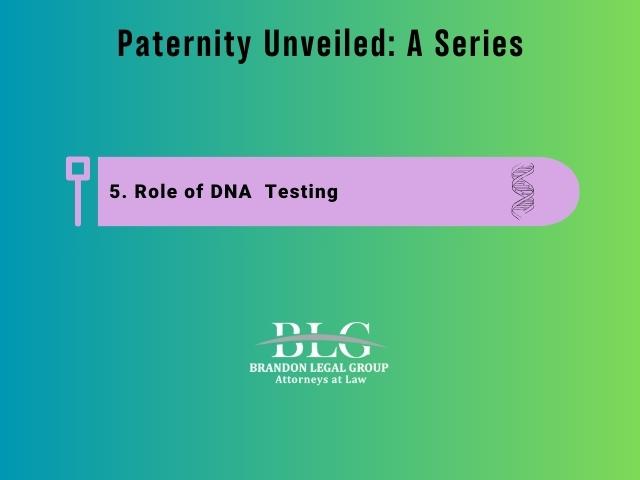 Discovering Truth with Modern Science: The Game Changer in Paternity Cases
Discovering Truth with Modern Science: The Game Changer in Paternity Cases
In today’s world, advancements in science and technology play a pivotal role in deciphering the truth. Particularly, in the intricate corridors of family law, the clarity DNA testing brings to paternity cases is unparalleled. Consider the bygone era when family disputes languished in uncertainty, with paternity fraud lurking undetected due to a lack of solid proof. Today, a simple swab can cut through deception, revealing the truth with crystal clarity.
Understanding Paternity in the Context of Family Law
The concept of paternity is deeply embedded in societal structures. It determines the course of various aspects—rights, responsibilities, emotional connections, inheritance, and more. In the olden days, many had to rely on mere words, causing rifts and unsolvable disputes. But the advent of DNA technology has heralded an era of undeniable truth.
The Historical Evolution of Paternity Testing
Establishing paternity has always been a quest for humanity. Early methods were based on physical resemblance, blood types, and other rudimentary observations. However, these were fraught with inaccuracies.
By the mid-20th century, HLA testing, which examined proteins on cell surfaces, became a prevalent method. While it offered better accuracy than previous means, it was not foolproof. Enter DNA testing in the latter part of the century. With its ability to compare genetic codes directly, it revolutionized the field, offering precision and reliability hitherto unmatched.
The Evolution of DNA Testing in Paternity Cases
DNA, the foundational block of human existence, offers a clear window into one’s lineage. By mapping genetic codes, it becomes nearly impossible to refute biological connections. This shift in determining familial ties has turned the tables in many court cases, where mere circumstantial evidence once held sway.
The following is a DRAMATIZATION AND IS NOT AN ACTUAL EVENT: Susan, a single mother, struggled to have her childhood love, Mark, accept their son, Alex. Mark, now a successful entrepreneur, denied any connection. But a DNA test, as recommended by Susan’s attorney, unveiled the irrefutable bond. Today, Alex not only has a father but also shares in Mark’s inheritance.
Benefits of DNA Testing in Paternity Cases
The precision of DNA testing brings forth myriad benefits:
- Accuracy: With an impressive track record, DNA tests eliminate doubts.
- Peace of Mind: Questions and uncertainties can torment minds. DNA tests offer a respite by confirming familial ties.
- Legal Clarity: DNA results can substantially influence legal decisions, affecting child support, custody, and more.
- Emotional Closure: Knowledge brings peace, either by confirming bonds or offering a path to move ahead.
Potential Pitfalls and Misunderstandings
As with all advancements, DNA testing isn’t immune to misconceptions. While it offers a high degree of accuracy, results, and their implications need to be interpreted judiciously. Not all tests are made equal, and without proper legal guidance, one might find themselves on shaky grounds.
The following is a DRAMATIZATION AND IS NOT AN ACTUAL EVENT: Kevin, in a bid to prove his paternity, opted for a discounted online DNA testing service. The results were favorable, but the court dismissed them due to the service’s questionable accreditation. Had Kevin consulted a reputable attorney, he might have avoided this costly misstep.
How to Proceed with DNA Testing
- Begin by seeking advice from a seasoned family law attorney. Understand the legal ramifications before taking a step.
- Select an accredited lab. Quality matters. Ensure that the results are both accurate and acceptable in legal scenarios.
- Once results are in hand, collaborate with your attorney to chart the best course forward.
FAQs
1. How accurate are DNA paternity tests?
DNA paternity tests boast an accuracy rate exceeding 99.9%. It’s the gold standard in determining biological relationships.
2. Can a DNA test be wrong?
Errors, although rare, can stem from lab mistakes or sample contamination. Choosing a reputable lab minimizes such risks.
3. What’s the time frame for results?
Generally, results span from a few days to weeks, contingent on the lab’s processes and the test’s complexity.
4. Can DNA tests differentiate between close relatives?
Yes, advanced DNA tests can discern the minute genetic differences between close relatives, such as siblings, or even between an uncle and a nephew. It’s this precision that gives DNA testing its unparalleled reliability in establishing biological relationships.
5. Are home DNA testing kits as reliable as those used in legal cases?
While many home DNA testing kits offer high accuracy, they may not adhere to the stringent chain-of-custody procedures required for legal cases. For matters involving legal paternity, it’s imperative to use a lab that meets the necessary legal standards to ensure the results are admissible in court.
Conclusion
Facing paternity doubts can be a complex challenge within the delicate framework of family law. With DNA testing, you have access to definitive answers, cutting through uncertainty with the precision of science.
Take control and empower yourself with the clarity you deserve, backed by expert legal support to navigate this journey.
If you’re ready to uncover the truth, reach out to us. We’re here to light your path towards resolution and peace of mind. Don’t hesitate—make the call today.
